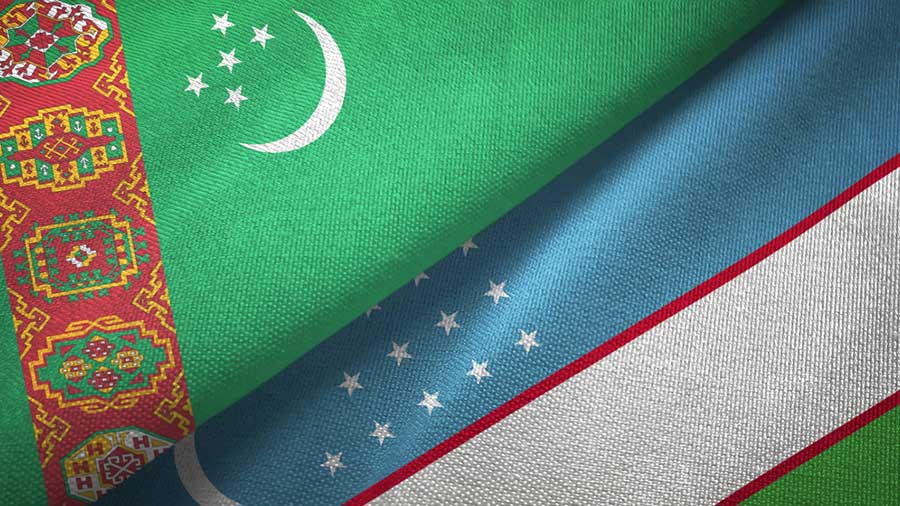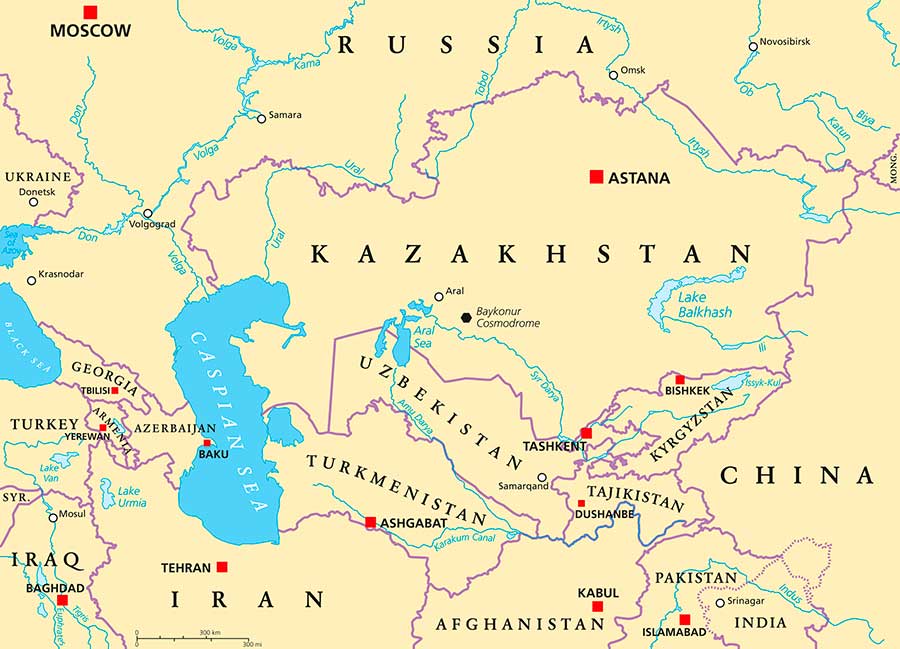Turkmenistan, Uzbekistan Looking To Strategically Cooperate Over Trade & Manufacturing Investment

New opportunities are looming as Europe-Asia supply chains move and EU trade agreements are exploited
Uzbekistan and Turkmenistan are discussing new ways to cooperate in industry and commerce, with the Uzbek Ministry of Investment and Foreign Trade in the form of Deputy Prime Minister – Minister of Investments and Foreign Trade of the Republic of Uzbekistan Sardor Umurzakov discussing the issues with the Turkmenistan Minister of Industry and Construction Production of Turkmenistan Baymyrat Annamamedov.
The potential for cooperation is vital for Uzbekistan in particular, the country is landlocked and needs to rely on neighbours such as Turkmenistan to gain access to markets in the West, including the UK and the EU. Uzbekistan signed off significant trade deals with them both late last year. Uzbekistan can import and export products to Europe, Turkey, Iran and India via the INSTC network, using Turkmenistan’s strategic position and rail to get goods to its Caspian sea ports. It can access China via rail connectivity with Kazakhstan.
During the meeting, measures were discussed to intensify industrial cooperation and create complete value chains with the beneficial involvement of production facilities in the two countries. Uzbekistan has been reforming its state-owned enterprises.
Emphasis was placed identifying the competitive advantages of the Uzbekistan and Turkmenistan economies as strategic, rather than competing partners.

Mechanisms for strengthening interregional cooperation were considered. The parties agreed to strengthen the coordination of the administrations of the regions of the two countries in order to develop new industrial cooperation projects and trade contracts.
During the talks, the parties emphasized tangible growth in the indicators of economic partnership between the two countries.
Over the past 4 years, the volume of Uzbek-Turkmen trade has increased 5 times, and in 2021, bilateral trade grew 65% compared to the previous year.
In addition, mutual readiness was expressed to organize visits of delegations of ministries and departments of Uzbekistan and Turkmenistan to exchange experience in the field of food security – a hot topic now that the Ukraine conflict has disrupted supply chains.
Turkmenistan is not a member of any regional trade bloc and has maintained a position of neutrality since the collapse of the USSR. However, it is linked to Uzbekistan via the Trade and Investment Framework Agreement (TIFA) which includes the United States, Kazakhstan, Tajikistan, Kyrgyzstan, and Uzbekistan. TIFA was established to provide a regional forum to discuss ways to improve investment climates and expand trade within Central Asia, although that has now been overtaken somewhat by the Shanghai Cooperation Organisation of which Uzbekistan is a member and Turkmenistan a permanent guest.
Related Reading
About Us
Chris Devonshire-Ellis is the Chairman of Dezan Shira & Associates. The firm assists British and Foreign Investment into Asia and has 28 offices throughout China, India, the ASEAN nations and Russia. For strategic and business intelligence concerning China’s Belt & Road Initiative please email silkroad@dezshira.com or visit us at www.dezshira.com





